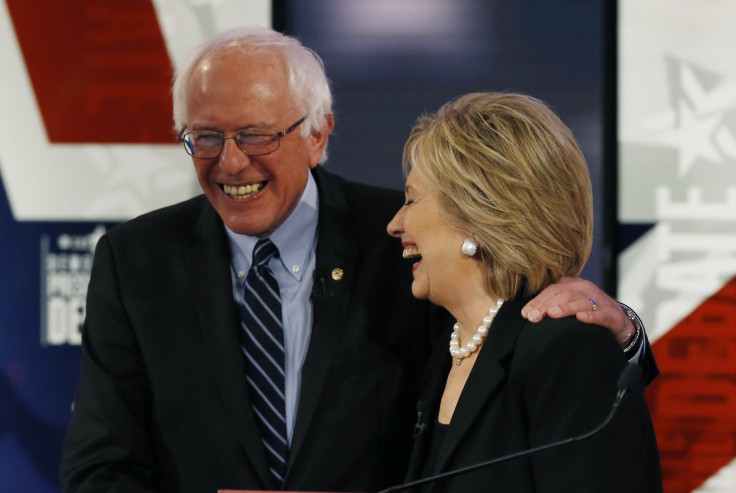When Is The Next Presidential Debate? Democratic Candidates Hillary Clinton, Bernie Sanders Go To South Carolina In 2016

With the final Democratic presidential debate of the year taking place Saturday in Manchester, New Hampshire, the remaining candidates already have their eyes set on critical forums scheduled for 2016. In January, February and March, the Democratic National Committee plans to stage the last series of debates before primary voters decide who the party’s next presidential nominee will be.
Up first is a Jan. 17 debate hosted by NBC News and the Congressional Black Caucus in Charleston, South Carolina. That debate is likely to feature questions about race and law enforcement reforms, among other national issues, given the debate location’s proximity to the scenes of national tragedies.
In April, a North Charleston police officer was videotaped while he shot a fleeing and unarmed black man in the back, and in June, a professed white supremacist killed nine black people inside Charleston’s Mother Emanuel African Methodist Episcopal Church. Both incidents happened amid increased racial tensions in the U.S. and protests against police fatal shootings of black men across the country.
South Carolina is the Democratic party’s first-in-the-South primary, notes the Charleston Post and Courier. State party leaders chose Charleston for the site partly because of recent events here, Jaime Harrison, chairman of the South Carolina Democratic Party, said back in August when the schedule was announced.
Recent polls give former Secretary of State Hillary Clinton with a commanding lead in the national race over her nearest challenger, Vermont Sen. Bernie Sanders, who was favored by 26 percent of voters to Clinton’s 59 percent. That’s according to the poll released Wednesday by Monmouth University in New Jersey. Former Maryland Gov. Martin O’Malley polled at just 4 percent.
The Democratic National Committee’s decision to approve just six debates during the election cycle had been criticized by voters. It’s a stark difference from the 12 debates scheduled for the Republican presidential field of nearly a dozen declared candidates.
© Copyright IBTimes 2025. All rights reserved.






















